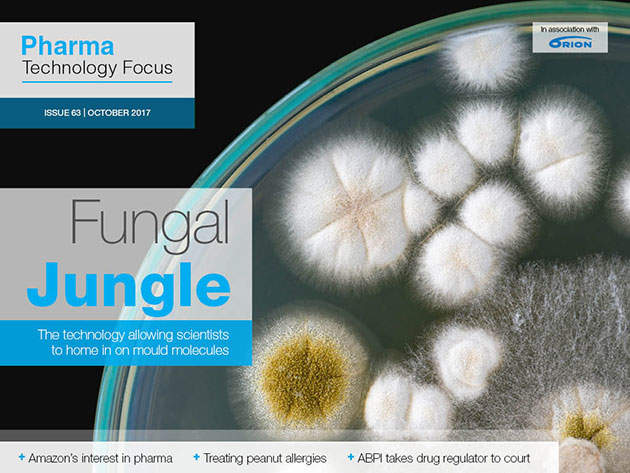

Pharma Technology Focus is free for the iPad. Download our app to read the latest issue and browse our back issues for free.

Discover B2B Marketing That Performs
Combine business intelligence and editorial excellence to reach engaged professionals across 36 leading media platforms.
The Association of the British Pharmaceutical Industry is taking UK drug regulator NICE to court over a policy to halt spending on new drugs that could cost more than £20m a year in any of their first three years of use. We take a closer look at the issues surrounding this important legal contest.
We also consider the reliability of reports that emerged earlier in May that retail giant Amazon was looking into creating a pharmaceutical division, find out more about a new technology platform that has the potential to speed up the process of capturing and identifying therapeutically promising molecules from fungi, and take a look at a potential new cure for osteoporosis.
Finally, we speak to Aimmune Therapeutics about the bio-pharma company’s ground-breaking new trial to treat peanut allergy in children and find out how Neo Technology is using graph databases to realise the value of big data in medical research and other life sciences applications.
In this issue
Pharma’s Legal Contest
The ABPI is taking UK drug regulator NICE to court over new spending caps, which will affect one in five of all new approved drugs. Abi Millar investigates the issues surrounding this important legal contest.
Read the article here.

US Tariffs are shifting - will you react or anticipate?
Don’t let policy changes catch you off guard. Stay proactive with real-time data and expert analysis.
By GlobalDataEncouraging Innovation in Japan
The Japanese pharmaceutical market is the second largest in the world, generating roughly $70bn in sales in 2016, yet it is often overlooked by manufacturers due to the country’s complex regulatory system. Akiko Fukui, healthcare analyst at GlobalData, reports.
Read the article here.
An Amazon Pharmacy?
Reports that Amazon is considering breaking into the US pharmacy industry have sent ripples up and down the drug supply chain. Chris Lo considers the implications for major players in this complex market.
Read the article here.
Mining Fungi
While fungi are a rich source of natural molecules, it has historically been hard to identify and capture these in a systematic way. Abi Millar finds out more about new technology that promises to speed up the process.
Read the article here.
Breaking Through
A new study has shown that the use of a common osteoporosis drug with anti-inflammatory medication is linked to a lower risk of hip fracture. This is just one of a range of new developments, as Elly Earls finds out.
Read the article here.
Hard Nut to Crack
Aimmune Therapeutics has just started a new European trial to treat peanut allergy in children. Elly Earls finds out what it will involve and why it’s been such a long time coming.
Read the article here.
The Power of Graphs
There are at least eight significant cancer research projects that are using graph databases. Emil Eifrem, CEO of software company Neo4j, looks at how life science researchers are starting to use the unique power of graph technology.
Read the article here.
Next issue preview
Hospitals and pharmacies are required to throw away expired drugs, no matter how expensive or vital they may be. However, new research has revealed that many of these drugs are effective long after their expiry dates have passed. We find out how these dates are set and ask whether important medications are being wasted unnecessarily.
We also take a closer look at a new drug for the treatment of lactose intolerance, speak to the world’s largest public-private partnership devoted to antibacterial R&D, CARB-X, to find out how they provide funding to applicants across the world, and explore a new method for treating schizophrenia.
Finally, we find out more about a new method of tracking nanoparticles to improve tumour drug delivery, and explore the potential of a new project at CERN, Europe’s nuclear research organisation, which aims to use secondary radioactive ion beams as a source of innovative medical isotopes for the diagnosis and treatment of cancer.
Digital magazine FAQ
You can read Pharma Technology Focus for free on the iPad. Download our app from the App Store to read the latest issue and browse the back issues in our archive. Sign up for a free subscription in the app and never miss a new issue.
You can also continue to read the desktop version for free on our web viewer. (Browser compatibility: The web viewer works in the latest two version of Chrome, Firefox and Safari, as well as in Internet Explorer 9 and 10. Some features may not be compatible with older browser versions.)




